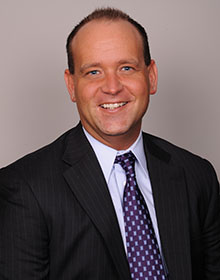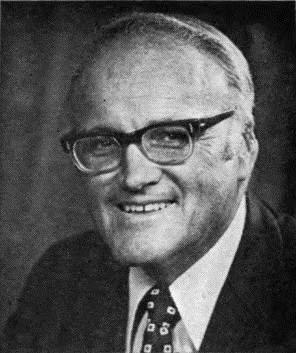Related Research Articles

The positions of majority leader and minority leader are held by two United States senators and members of the party leadership of the United States Senate. They serve as the chief spokespersons for their respective political parties holding the majority and the minority in the United States Senate. They are each elected as majority leader and minority leader by the senators of their party caucuses: the Senate Democratic Caucus and the Senate Republican Conference.
The United States Constitution provides that each "House may determine the Rules of its Proceedings," therefore each Congress of the United States, upon convening, approves its own governing rules of procedure. This clause has been interpreted by the courts to mean that a new Congress is not bound by the rules of proceedings of the previous Congress.

The 82nd United States Congress was a meeting of the legislative branch of the United States federal government, composed of the United States Senate and the United States House of Representatives. It met in Washington, D.C., from January 3, 1951, to January 3, 1953, during the last two years of President Harry S. Truman's second term in office.
A congressional subcommittee in the United States Congress is a subdivision of a United States congressional committee that considers specified matters and reports back to the full committee.

The House Republican Conference is the party caucus for Republicans in the United States House of Representatives. It hosts meetings and is the primary forum for communicating the party's message to members. The Conference produces a daily publication of political analysis under the title Legislative Digest.

The Senate Republican Conference is the formal organization of the Republican Senators in the United States Senate, who currently number 49. Over the last century, the mission of the conference has expanded and been shaped as a means of informing the media of the opinions and activities of Senate Republicans. Today the Senate Republican Conference assists Republican Senators by providing a full range of communications services including graphics, radio, television, and the Internet. Its current Chairman is Senator John Barrasso, and its Vice Chairwoman is currently Senator Shelley Moore Capito.

The secretary of the Senate is an officer of the United States Senate. The secretary supervises an extensive array of offices and services to expedite the day-to-day operations of that body. The office is somewhat analogous to that of the clerk of the United States House of Representatives.

The Congressional Record is the official record of the proceedings and debates of the United States Congress, published by the United States Government Publishing Office and issued when Congress is in session. The Congressional Record Index is updated daily online and published monthly. At the end of a session of Congress, the daily editions are compiled in bound volumes constituting the permanent edition. Chapter 9 of Title 44 of the United States Code authorizes publication of the Congressional Record.

The Congressional Budget Office (CBO) is a federal agency within the legislative branch of the United States government that provides budget and economic information to Congress. Inspired by California's Legislative Analyst's Office that manages the state budget in a strictly nonpartisan fashion, the CBO was created as a nonpartisan agency by the Congressional Budget and Impoundment Control Act of 1974.

The clerk of the United States House of Representatives is an officer of the United States House of Representatives, whose primary duty is to act as the chief record-keeper for the House.

James Grant O'Hara was a soldier and politician from the U.S. state of Michigan, serving as U.S. Representative from 1959 to 1977.
A congressional caucus is a group of members of the United States Congress that meet to pursue common legislative objectives. Formally, caucuses are formed as congressional member organizations (CMOs) through the United States House of Representatives and the United States Senate and governed under the rules of these chambers. In addition to the term "caucus", they are sometimes called conferences, coalitions, study groups, task forces, or working groups. Many other countries use the term parliamentary group; the Parliament of the United Kingdom has many all-party parliamentary groups.

Daniel Evan Button was a Republican member of the United States House of Representatives from New York. He died aged 91 at Albany Medical Center in Albany, New York.

Asher Crosby Hinds was an American newspaperman and politician who served three terms as a United States representative from Maine from 1911 to 1917.

Calvin Smyre is an American politician who recently served as a member of the Georgia House of Representatives for the 135th district. Elected in 1974, he was the longest-serving member of the Georgia Legislature. In May 2022, his nomination to serve as the United States ambassador to the Dominican Republic was withdrawn and he was instead nominated to serve as the United States ambassador to the Bahamas.

The United States House of Representatives is the lower chamber of the United States Congress, with the Senate being the upper chamber. Together, they comprise the national bicameral legislature of the United States.

Party leaders of the United States House of Representatives, also known as floor leaders, are congresspeople who coordinate legislative initiatives and serve as the chief spokespersons for their parties on the House floor. These leaders are elected every two years in secret balloting of their party caucuses or conferences: the House Democratic Caucus and the House Republican Conference. Depending on which party is in power, one party leader serves as majority leader and the other as minority leader.

The 118th United States Congress is the current meeting of the legislative branch of the United States federal government, composed of the United States Senate and the United States House of Representatives. It convened in Washington, D.C., on January 3, 2023, and will end on January 3, 2025, during the final two years of President Joe Biden's initial term.